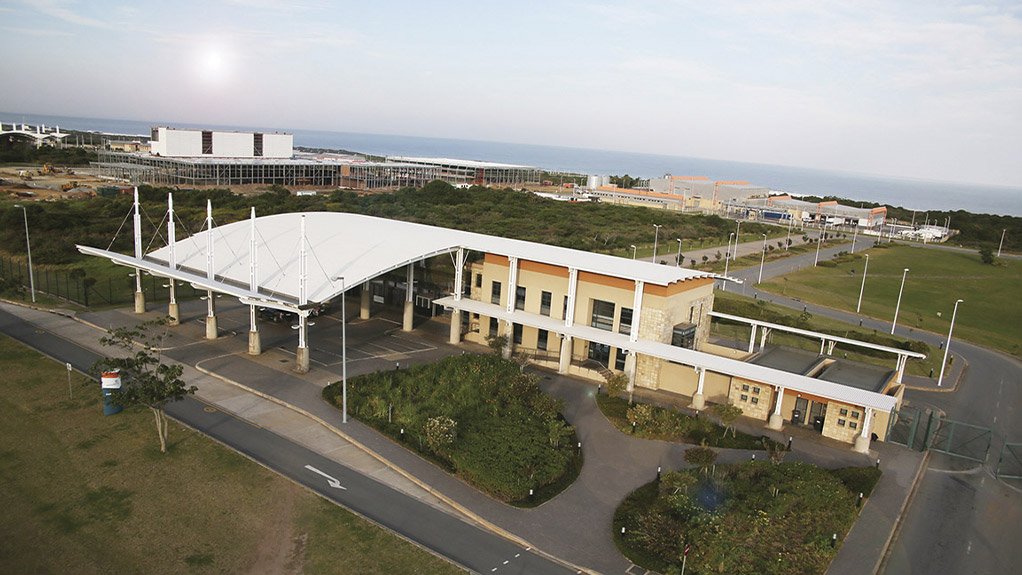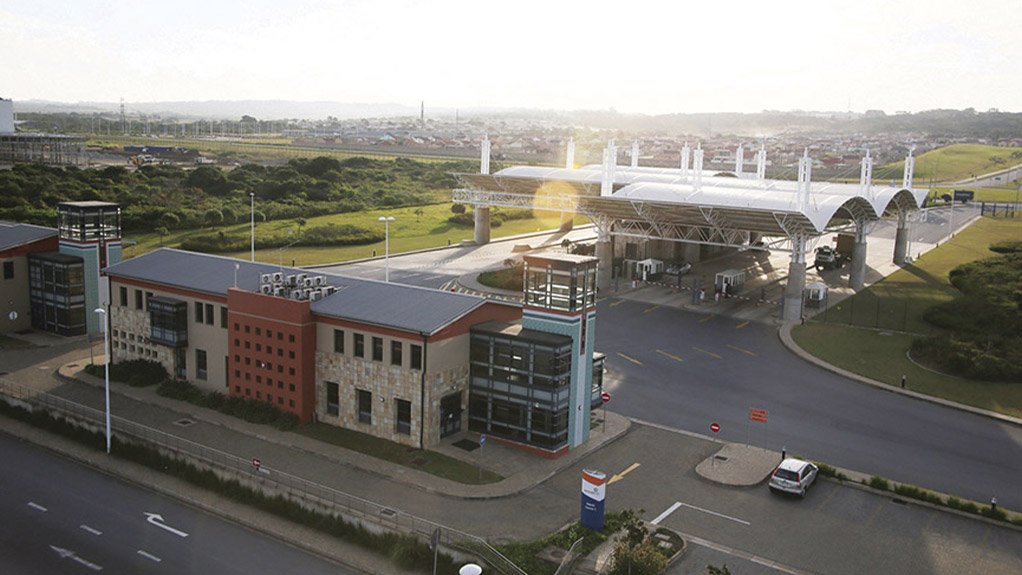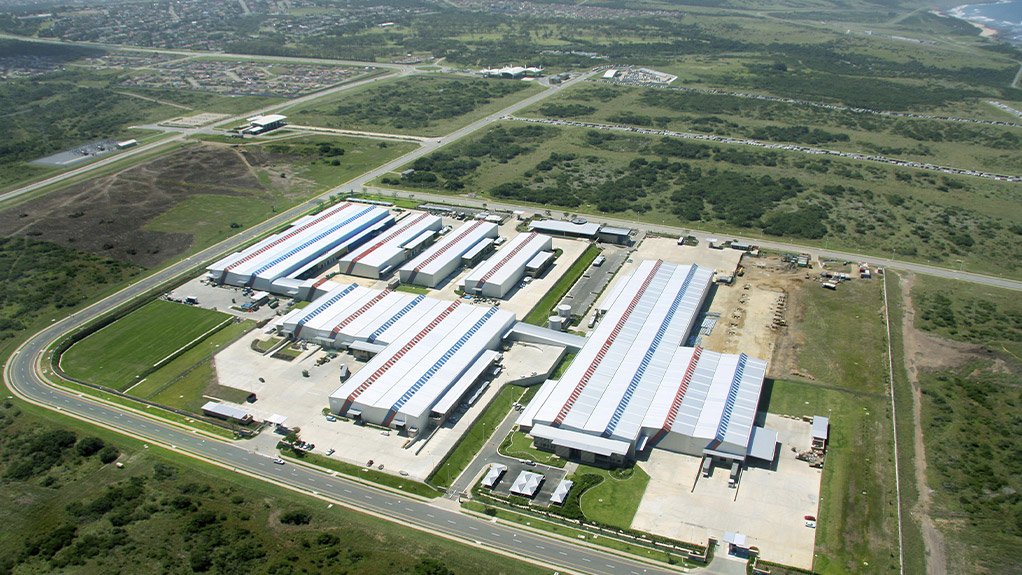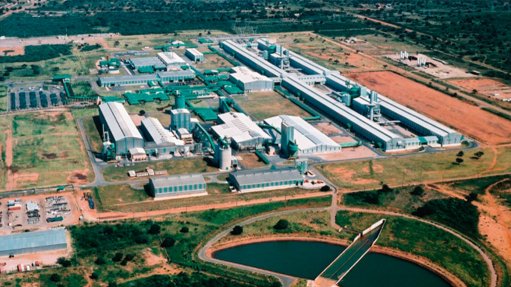The benefits and possibilities of establishing eco-industrial parks




East London Industrial Development Zone is working towards becoming an internationally recognized eco-industrial park, an dis one of the participants of the EIP Programme
Photo by East London IDZ
East London Industrial Development Zone is working towards becoming an internationally recognized eco-industrial park, an dis one of the participants of the EIP Programme
Photo by East London IDZ
This article has been supplied.
For property managers of commercial and industrial business parks, applying the principles and methodologies of resource efficiency and other sustainable business models can not only improve their environmental footprint, but can make them more sought-after locations, have a positive benefit on the community around them, and save on the bottom line. An easy first step in a transition to an improved future business model is to access the many free tools and guides developed by industrial development support organisations.
The National Cleaner Production Centre, South Africa (NCPC-SA) is a government-funded programme mandated to support industry in the transition to a green economy. That is a big task and covers a vast array of possible interventions.
Fortunately, they do not work towards this goal alone. Industry, government and the international industrial development community are all becoming increasingly aware of the undisputable need to operate in a more sustainable manner, and new tools and methodologies are introduced with increased regularity and success.
One of the globally successful approaches to ensuring production that has a more positive effect on the communities and ecosystems surrounding industry, is the “greening” of industrial parks and economic zones. The approach has gained popularity and been formalised in the concept of eco-industrial parks.
An eco-industrial park (EIP) is defined as “a community of manufacturing and service businesses located together on common property. Member businesses seek enhanced environmental, economic and social performance through collaboration in managing environmental and resource issues. By working together, the community of businesses seeks a collective benefit that is greater than the sum of individual benefits each company would realise by only optimising its individual performance.”
In short, the EIP concept is about creating more resource efficient and cost-effective industrial parks which are more competitive, attractive for investment, and risk resilient.
The transformation of traditional industrial parks into EIPs presents a valuable opportunity to tackle economic, environmental and social challenges and capitalise on opportunities for sustainable industrial development. International agencies GIZ, UNIDO and the World Bank Group developed an international framework which provides guidance on what constitutes an EIP and how an industrial park can work towards becoming an EIP.
The framework is based on four key categories, namely park management performance; environmental performance; social performance; and economic performance. In each category they then identify prerequisites and performance indicators, that can be verified and measured in qualitative or quantitative terms. The prerequisites highlight the basic requirements for EIPs, and the performance indicators describe expected performance levels that an EIP must meet.
The International EIP Framework is not a certification or audit scheme. The framework is a practical means to understand the current status and intentions of an industrial park with regard to their EIP transformation and identify a set of practical promising opportunities for the park through a process of continuous improvement.
(Download the International EIP framework from the NCPC-SA’s industrial efficiency portal)
Benefits of EIPs
International good practices illustrate that the types of economic, environmental and social benefits from EIPs vary greatly and go well beyond the conventional business case benefits. Benefits are not just commercial but also strategic, leading to reduced risk exposure, increased competitiveness, business development, production continuity and a better reputation with key stakeholders.
EIPs enable companies to benefit from greater collaboration and exchanges in internal departments of companies, for example management, technical and environmental staff, finance, etc.). There is also greater collaboration between companies, government and service providers. Tenants and management are enabled collectively to turn environmental problems into business solutions by using resources efficiently and through shared infrastructure.
Support to industrial parks in South Africa
The Department of Trade, Industry and Competition (the dtic) launched its industrial park revitalisation programme (IPRP) in 2015 throughout South Africa, primarily within historically disadvantaged areas. The programme aims to support economic development by removing barriers related to infrastructure, market access and institutional support, thereby developing sustainable industrial clusters on the back of industrial assets in those regions.
The implementation of the programme is divided into five progressive phases:
- Security infrastructure upgrades, top structures, critical utility infrastructure;
- Compliance to regulatory requirements, renewable energy and resource efficient operations;
- New infrastructure development;
- Capacity building, business expansion and investment promotion;
- Development of sustainable industrial clusters and parks.
GEIPP support in South Africa
The work of the dtic and the NCPC-SA in this area received a welcome boost with the launch of the Global Eco-Industrial Parks Programme (GEIPP) in December 2020. The GEIPP, which is a project funded by the Swiss government and managed internationally by UNIDO, demonstrates the viability and benefits of greening industrial parks by improving resource productivity and economic, environmental and social performance of businesses and thereby contributing to inclusive and sustainable industrial development in the participating developing and transition economies. The programme includes country level interventions and global knowledge development.
GEIPP South Africa is being implemented from 2021 to 2023 through a collaboration of UNIDO with the dtic and the NCPC-SA.
The NCPC-SA is conducting park assessments and providing a broad range of resource efficiency training. They can then provide tenant companies with assessments and support to implement energy management, water efficiency improvements and waste exchanges through industrial symbiosis.
The various knowledge tools being developed are also free to download and use. They can be accessed on the NCPC-SA website (www.ncpc.co.za), or via its Industrial Efficiency portal at https://www.industrialefficiency.co.za/eip-toolbox/
Enquiries or requests for assistance may be directed to the NCPC-SA, at ncpc@csir.co.za
Article Enquiry
Email Article
Save Article
Feedback
To advertise email advertising@creamermedia.co.za or click here
Press Office
Announcements
What's On
Subscribe to improve your user experience...
Option 1 (equivalent of R125 a month):
Receive a weekly copy of Creamer Media's Engineering News & Mining Weekly magazine
(print copy for those in South Africa and e-magazine for those outside of South Africa)
Receive daily email newsletters
Access to full search results
Access archive of magazine back copies
Access to Projects in Progress
Access to ONE Research Report of your choice in PDF format
Option 2 (equivalent of R375 a month):
All benefits from Option 1
PLUS
Access to Creamer Media's Research Channel Africa for ALL Research Reports, in PDF format, on various industrial and mining sectors
including Electricity; Water; Energy Transition; Hydrogen; Roads, Rail and Ports; Coal; Gold; Platinum; Battery Metals; etc.
Already a subscriber?
Forgotten your password?
Receive weekly copy of Creamer Media's Engineering News & Mining Weekly magazine (print copy for those in South Africa and e-magazine for those outside of South Africa)
➕
Recieve daily email newsletters
➕
Access to full search results
➕
Access archive of magazine back copies
➕
Access to Projects in Progress
➕
Access to ONE Research Report of your choice in PDF format
RESEARCH CHANNEL AFRICA
R4500 (equivalent of R375 a month)
SUBSCRIBEAll benefits from Option 1
➕
Access to Creamer Media's Research Channel Africa for ALL Research Reports on various industrial and mining sectors, in PDF format, including on:
Electricity
➕
Water
➕
Energy Transition
➕
Hydrogen
➕
Roads, Rail and Ports
➕
Coal
➕
Gold
➕
Platinum
➕
Battery Metals
➕
etc.
Receive all benefits from Option 1 or Option 2 delivered to numerous people at your company
➕
Multiple User names and Passwords for simultaneous log-ins
➕
Intranet integration access to all in your organisation





















